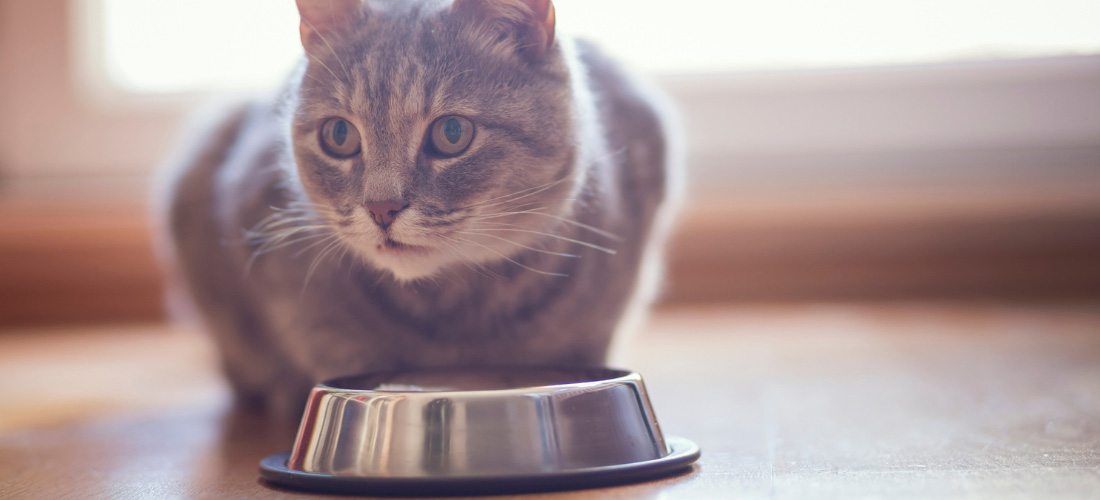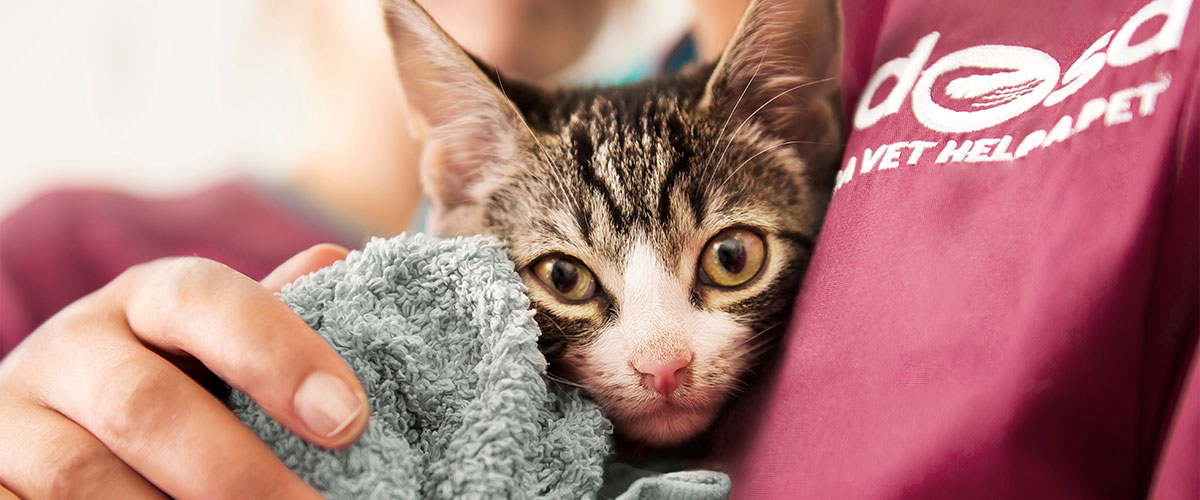Why is my cat always hungry?
Is your cat eating more?
It can be worrying if your cat suddenly seems to be asking for food all the time, or eating more than usual. If their eating habits have changed from what is normal for them, there may be an underlying medical issue. Polyphagia is the medical word used to describe excessive hunger or increased appetite.

Why is my cat always hungry?
There are many possible reasons why your cat is always hungry, including:
More common:
- Hyperthyroidism – an overactive thyroid gland
- Diabetes
- Parasites for example worms
- Certain medication such as steroids and anti-seizure medications
- Pregnancy and lactation (producing milk)
- Malabsorption – difficulty digesting or absorbing nutrients from food
- Genetics – some cats eat more than they should which can be influenced by genetics and can often result in obesity
- Boredom or stress for example the introduction of a new pet
Less common:
- A change in food especially if the new food is lower quality and doesn’t provide a balanced diet
- Doing more exercise for example if an indoor cat starts going outdoors
- If their environment is colder than usual for example in Winter
- Cushing’s disease – rare in cats compared to dogs
- Acromegaly – when too much growth hormone is made in the body
Other symptoms to look out for if your cat is always hungry
Depending on the cause, there are some other symptoms that you might notice at the same time as your cat being hungrier. For example,
- Weight loss or weight gain
- Drinking and weeing more than normal
- Changes to their skin or hair coat
- Lethargy
- Vomiting or diarrhoea
- More active than usual or irritable
Diagnosis and treatment
Your vet will examine your cat and might advise doing blood, wee, and poo samples. They might also suggest other tests for example scans and x-rays. Treatment will depend on the underlying cause of the problem.
When to contact your vet
Contact your vet if your cat has been hungrier than usual or is looking for food all the time. Be sure to let your vet know about any other symptoms you have noticed alongside their increased appetite. You know your cat best, always contact your vet if you’re concerned.
Consider insuring your cat as soon as you get them, before any signs of illness start. This will ensure you have all the support you need to care for them.
- Should I limit how much I am feeding my cat if they are asking for more food all the time?
- How do I know if my cat is eating too much?
- How can I stop my overweight cat from overeating?
- How many meals per day should my cat eat?
Should I limit how much I am feeding my cat if they are asking for more food all the time?
It depends on why your cat has an increased appetite. Always speak to your vet first as they will be able to guide you on how much food you should be feeding your cat, based on their individual needs.
How do I know if my cat is eating too much?
If your cat is asking for more food despite eating what they normally have, they may have an increased appetite. If you think your cat is eating too much, it is best to contact your vet for an appointment.
How can I stop my overweight cat from overeating?
Feeding the right amount of food by following the guidelines on the packet and using electronic scales to weigh their food is vital. You should feed your cat based on ideal weight, which might be different from what they currently weigh if they’re overweight or underweight.
And don’t forget to reduce their food if you’re giving them treats. Make sure that their treat allowance doesn’t take up any more than 10% of their daily food, and factor this in by reducing their daily food by 10%.
How many meals per day should my cat eat?
Many cats prefer to have lots of small meals rather than one big one. Most cats graze, eating between eight and sixteen times per day! So once you’ve weighed their food for the day, it’s best to leave it out for them so they can graze throughout the day – unless it’s likely to go off or might be eaten by another pet.
Published: January 2024
Did you find this page useful?
Tell us more
Please note, our vets and nurses are unable to respond to questions via this form. If you are concerned about your pet’s health, please contact your vet directly.
Thank you for your feedback
Want to hear more about PDSA and get pet care tips from our vet experts?
Sign up to our e-newsletter
Written by vets and vet nurses. This advice is for UK pets only. Illustrations by Samantha Elmhurst.

